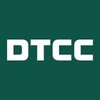Filter interviews by
State Street Syntel Associate Interview Questions and Answers
15 Interview questions
NAV stands for Net Asset Value, which represents the per-share value of a mutual fund or exchange-traded fund (ETF).
NAV is calculated by subtracting a fund's liabilities from its assets and dividing by the number of outstanding shares.
It is used to determine the price at which investors can buy or sell shares of the fund.
NAV is typically calculated at the end of each trading day.
For example, if a mutual fund has a...
Assets are resources owned by a company or individual that have economic value and can be used to generate revenue.
Assets can include cash, investments, property, equipment, and inventory.
They are typically listed on a company's balance sheet and can be tangible or intangible.
Assets are important for determining the financial health and value of a business.
Examples of assets include buildings, vehicles, patents, t...
Swaps are financial agreements between two parties to exchange cash flows or assets in the future.
Swaps are commonly used in the financial markets to manage risk or speculate on market movements.
There are different types of swaps such as interest rate swaps, currency swaps, and commodity swaps.
In an interest rate swap, two parties exchange interest rate payments, typically fixed for floating or vice versa.
Currency...
An option is a financial derivative that represents a contract sold by one party to another.
An option gives the buyer the right, but not the obligation, to buy or sell an underlying asset at a specified price before or on a specified date.
There are two types of options: call options (which give the buyer the right to buy the underlying asset) and put options (which give the buyer the right to sell the underlying a...
Impacted factors in NAV include market conditions, interest rates, company performance, and economic indicators.
Market conditions such as volatility and liquidity can impact NAV
Interest rates affect the value of fixed income securities in the NAV
Company performance, such as earnings and dividends, can influence NAV
Economic indicators like GDP growth and inflation can also impact NAV
Primary market is where new securities are issued, while secondary market is where already issued securities are traded.
Primary market involves the sale of new securities to the public for the first time
Secondary market involves the trading of already issued securities among investors
Primary market helps companies raise capital for their business operations
Secondary market provides liquidity to investors who want ...
Financial markets are platforms where buyers and sellers trade financial assets such as stocks, bonds, currencies, and commodities.
Financial markets facilitate the flow of capital between investors and borrowers.
They provide a mechanism for price discovery and risk management.
Examples of financial markets include stock exchanges, bond markets, foreign exchange markets, and commodity markets.
Financial markets can b...
A mutual fund is a type of investment vehicle made up of a pool of money collected from many investors to invest in securities.
Mutual funds are managed by professional fund managers.
Investors buy shares in the mutual fund, which represents a portion of the holdings of the fund.
The value of the shares is determined by the performance of the underlying securities in the fund.
Mutual funds offer diversification and co...
Corporate Action refers to any event initiated by a publicly-traded company that affects its shareholders.
Corporate actions can be voluntary or mandatory.
Examples of corporate actions include stock splits, dividends, mergers and acquisitions, and spin-offs.
Corporate actions can have a significant impact on the value of a company's stock and the wealth of its shareholders.
Investors need to stay informed about corpo...
Derivatives are financial contracts that derive their value from an underlying asset. They can be exchange-traded or over-the-counter (OTC). Corporate actions refer to events that affect a company's stock price.
Derivatives are contracts that derive their value from an underlying asset, such as stocks, bonds, or commodities.
There are two types of derivatives: exchange-traded and over-the-counter (OTC). Exchange-tra...
State Street Syntel Associate Interview Experiences
29 interviews found
I applied via Naukri.com and was interviewed before Apr 2022. There were 2 interview rounds.
(3 Questions)
- Q1. Capital Markets
- Q2. Derivatives types
- Q3. Mutual fund and other
(2 Questions)
- Q1. Last one take Same
- Q2. Last ones take same
Mail writing, financial reporting
(1 Question)
- Q1. Finance Domain knowledge like Capital Market, Mutual Fund, Reconciliation
Share your views in group discussion on given topic
(1 Question)
- Q1. Personal question
(1 Question)
- Q1. Fund accounting and investment banking related questions. what is Nav ? What is derivative? What is interest rate swaps?
I applied via Company Website and was interviewed in Jun 2023. There were 3 interview rounds.

(2 Questions)
- Q1. Introduction about yourself
- Q2. Basic question they are asking
(2 Questions)
- Q1. Derivative and basic question on Invetsment banking
- Q2. Types of derivatives and bonds
- Ans.
Derivatives include options, futures, and swaps. Bonds include government, corporate, and municipal bonds.
Types of derivatives: options, futures, swaps
Types of bonds: government, corporate, municipal
Examples: S&P 500 futures, Apple call options, US Treasury bonds
I applied via Naukri.com and was interviewed before Sep 2023. There was 1 interview round.
(5 Questions)
- Q1. What is Option?
- Ans.
An option is a financial derivative that represents a contract sold by one party to another.
An option gives the buyer the right, but not the obligation, to buy or sell an underlying asset at a specified price before or on a specified date.
There are two types of options: call options (which give the buyer the right to buy the underlying asset) and put options (which give the buyer the right to sell the underlying asset)...
- Q2. What is Swaps ?
- Ans.
Swaps are financial agreements between two parties to exchange cash flows or assets in the future.
Swaps are commonly used in the financial markets to manage risk or speculate on market movements.
There are different types of swaps such as interest rate swaps, currency swaps, and commodity swaps.
In an interest rate swap, two parties exchange interest rate payments, typically fixed for floating or vice versa.
Currency swap...
- Q3. What is Mean by NAV?
- Ans.
NAV stands for Net Asset Value, which represents the per-share value of a mutual fund or exchange-traded fund (ETF).
NAV is calculated by subtracting a fund's liabilities from its assets and dividing by the number of outstanding shares.
It is used to determine the price at which investors can buy or sell shares of the fund.
NAV is typically calculated at the end of each trading day.
For example, if a mutual fund has assets...
- Q4. What are impacted factors are in NAV
- Ans.
Impacted factors in NAV include market conditions, interest rates, company performance, and economic indicators.
Market conditions such as volatility and liquidity can impact NAV
Interest rates affect the value of fixed income securities in the NAV
Company performance, such as earnings and dividends, can influence NAV
Economic indicators like GDP growth and inflation can also impact NAV
- Q5. What is mean by Assets
- Ans.
Assets are resources owned by a company or individual that have economic value and can be used to generate revenue.
Assets can include cash, investments, property, equipment, and inventory.
They are typically listed on a company's balance sheet and can be tangible or intangible.
Assets are important for determining the financial health and value of a business.
Examples of assets include buildings, vehicles, patents, tradem...
Skills evaluated in this interview
I appeared for an interview before Apr 2024, where I was asked the following questions.
- Q1. What arw the Golden Rules of accounting
- Q2. What is capital market
I applied via Walk-in and was interviewed before Apr 2023. There were 2 interview rounds.
Email writing Anything can be either apology letter to manager or to the client.
(1 Question)
- Q1. 2) HR and 3) Ops interview - Capital Markets & types?Derivatives meaning & types? Mutual funds? Golden rules? Moderate Communication skills required.
Interview Preparation Tips
I applied via Walk-in and was interviewed before Feb 2023. There were 2 interview rounds.
(1 Question)
- Q1. Tell me about yourself, shifts n all further stidies
(1 Question)
- Q1. About finace related questions thats it
Interview Preparation Tips
I applied via Walk-in and was interviewed before Feb 2023. There was 1 interview round.
(1 Question)
- Q1. Tell me about youself and some finance questions
Interview Preparation Tips
Top trending discussions






State Street Syntel Interview FAQs
Some of the top questions asked at the State Street Syntel Associate interview -
The duration of State Street Syntel Associate interview process can vary, but typically it takes about less than 2 weeks to complete.
Tell us how to improve this page.
State Street Syntel Interviews By Designations
- State Street Syntel Associate Interview Questions
- State Street Syntel Senior Associate Interview Questions
- State Street Syntel Financial Analyst Interview Questions
- State Street Syntel Process Associate Interview Questions
- State Street Syntel Officer Interview Questions
- State Street Syntel KPO Officer Interview Questions
- State Street Syntel Associate Consultant Interview Questions
- State Street Syntel Senior Financial Analyst Interview Questions
- Show more
Interview Questions for Popular Designations
Overall Interview Experience Rating
based on 22 interview experiences
Difficulty level
Duration
Interview Questions from Similar Companies
State Street Syntel Associate Reviews and Ratings
based on 520 reviews
Rating in categories
|
Associate
2.1k
salaries
| ₹1.5 L/yr - ₹5.5 L/yr |
|
Senior Associate
1.4k
salaries
| ₹2 L/yr - ₹8 L/yr |
|
Financial Analyst
752
salaries
| ₹1.6 L/yr - ₹4.5 L/yr |
|
Team Lead
532
salaries
| ₹3.5 L/yr - ₹12.5 L/yr |
|
Deputy Manager
252
salaries
| ₹5 L/yr - ₹14.4 L/yr |

Indusind Marketing & Financial Services

Home First Finance Company India

Pamac Finserve

SHARE Microfin
- Home >
- Interviews >
- State Street Syntel Interview Questions















